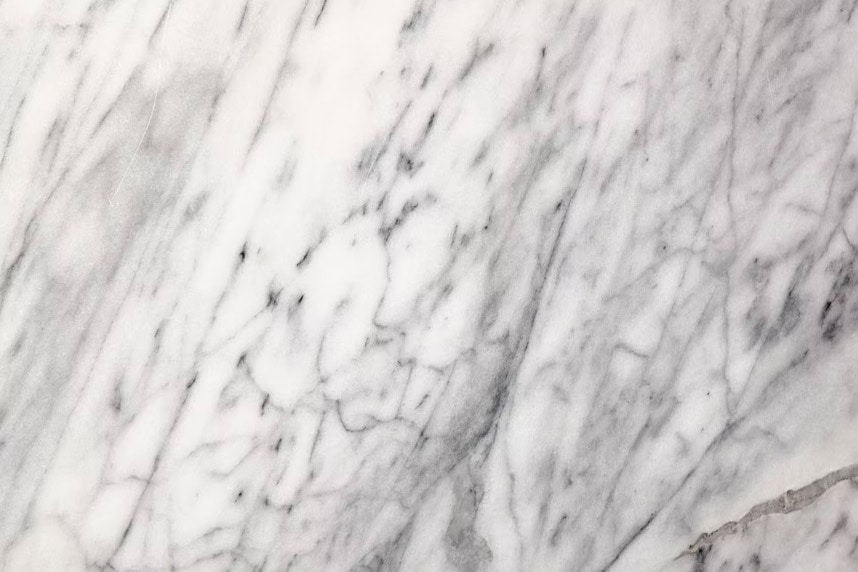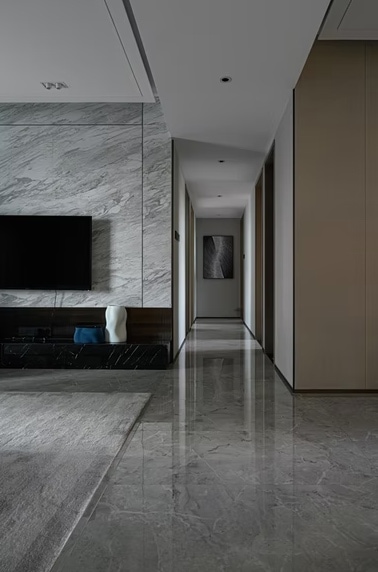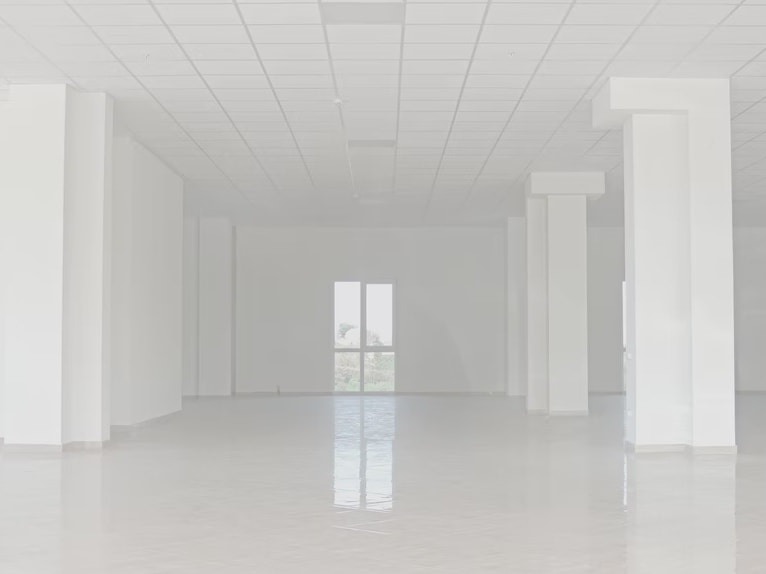Marble is a metamorphic limestone that is widely used in the sculpturing of statues and the construction of buildings and monuments. In addition, it is commonly used in tiles, countertops and indoor flooring. Working with these materials generates marble dust, which can cause respiratory issues and irritation of the eyes and skin.
Because marble is porous, it’s susceptible to water seeping in and causing damage or discolouration. A penetrating sealer helps keep water from soaking into the flooring. You’ll need to reapply the sealer regularly to maintain that level of protection from water.
Marble tile flooring is renowned for being really conducive, keeping in mind particular regions of the home free of the infestation of allergens and pathogens because it can have the ability to keep minute particles coming from thriving and also finding liveable space on the surface. These kinds of tile alternatives make it challenging for bacteria and microscopic bacterias to live in the idea, which explains why it is easy to clean. Regarding daily routine maintenance, all you need is a clean cloth along with permitted detergent for your tiles to look as good as new.
These surfaces are also well-known for providing a cool, calming walking surface, particularly in the house regions that can be generally hot and humid. This is because this kind of material can easily retain the winter of its surroundings. In addition, these tiles don’t need as much cleansing because, for starters, they are resistant to moisture and shine naturally, which does not necessitate daily waxing.
In the old days, marble was only a choice for any flooring option, but today there are 100+ options available in the market for different flooring purposes. So due to this, Customers are getting confused while selecting marble or any other natural stone from the market. So today, coming with marble will try to give a better guide for choosing marble tiles or slabs from the market.
Marble is fixing its first position due to high durability, hardness, ease of cleaning, sleek shine and elegance. Moreover, it is a natural stone, so its resistance, cracking and breaking strength are higher than other stones. That is the main region today designer always prefers marble tiles or slabs for any flooring option. Moreover, marble is softer than granite, so it is easy to shape and give an attractive design.
But it also has several disadvantages of marble flooring, which you need to know while going select marble for your flooring option.
Natural stone is a good choice for updating your home’s kitchen and bathroom countertops. It lends beauty to the room, is available in a wide range of colours, can be customized to nearly any shape and size, and is easy to blend with any type of home decor, making it versatile no matter what the style of your home is.
Granite and marble are the most popular choices when it comes to natural stone countertops. There are pros and cons to using each material, so it’s just a matter of deciding what’s right for your needs as well as your budget. Marble, for example, is elegant in appearance, while granite offers a more natural look. Both options can be costly, with marble generally being more expensive than granite, and their size and weight typically require professional installation.
The artificial stone used to make kitchen and bathroom countertops has been linked to death and irreversible lung injury cases in workers who cut, grind, and polish this increasingly popular material.

The fear is that thousands of workers in the United States who create countertops out of what’s known as “engineered stone” may be inhaling dangerous amounts of lung-damaging silica dust because the engineered stone is mostly made of the mineral silica.
But marble manufacturers say flat-out that, “Radiation in granite is not dangerous.” Radon is “a cancer-causing natural radioactive gas that you can’t see, smell or taste,” the Environmental Protection Agency explains on its Web site. “Its presence in your home can pose a danger to your family’s health.
FAQ About Marble Floors
Is marble good for bathroom floors?
Polished marble tiles can often get slick and slippery when wet. This makes them an unsuitable choice for bathroom and kitchen floor and flooring. Plus, polished marble tiles require lots of maintenance to keep them looking nice and shiny always. So you may use unpolished marble instead.
Is marble good for the bedroom?
Using marble tiles for the bedroom is the best way you can make your earth paradise look ethereal. Some of the factors that prove its credibility is, it is stain resistant, so be it heat or any chemical, your flooring will remain undamaged; hassle-free maintenance, you do not need to make extra effort to clean your bedroom; durability, it will last longer than a century; and last but not the list, the magnificent ambience that it creates.
Is marble good for kitchen countertops?
As mansion above, marble need high maintenance cost because its stained and scratched value is greater than other stones. Only a small spill of tea, coffee or mustard oil can ruin your brand-new floor. So better to use granite instead of marble.
Health Risks of Marble
Silicosis
Stone carving of a hard stone like marble requires the use of power tools such as saws, drills, grinders and sanders. Inhaling marble dust causes toxic effects on the respiratory system. Workers and residents living in areas adjacent to stone quarries are prone to a disease called silicosis, whereby inhaled marble dust damages the cells of the respiratory system. Symptoms include a chronic cough and shortness of breath. There is no specific treatment other than supportive treatment such as cough medicine, bronchodilators and oxygen. People with silicosis have a higher risk of developing tuberculosis. Wearing a protective respirator may decrease the risk of inhaling marble dust.
Eye Irritation
Grinding and polishing marble releases small particles of stone and dust into the air. Exposure to the eyes with airborne marble dust irritates because of the abrasiveness of the product. Recommended first-aid measures include flushing the eyes with water thoroughly for 15 minutes, gently lifting the eyelids and rinsing under the eyelids and avoid scrubbing or rubbing the eyes. Seek medical attention if irritation and discomfort persist. Wearing eye protection may decrease the risk of eye irritation when working with marble.
Calcium Oxide
Marbles will erode with time, and this is a natural phenomenon of every rock, and marble is not an exception. When exposed to heat, Marble will slowly decompose, giving out carbon dioxide and forming calcium oxide.
For your information, calcium oxide is our very own quick lime, so when you use your countertops for cutting and kneading dough, some chemicals are added to your food.
Carbon di Oxide
Marbles react with acidic substances releasing carbon dioxide. Thus when you spill lemon juice, orange juice or even some tamarind on your countertops, you are fastening the decomposition as well as inhaling carbon dioxide, which you know would cause health hazards.
Calcium bi Carbonate
Marbles will react with water to give calcium bicarbonate and carbon dioxide, which will make you sick with time.
So what do we do, go back to churches and earthen floors?
If you are very particular about being trendy and glossy, you can actually choose a more stable rock, granite. Granite is far better than marble; wood or glass is also a good option.
If you have already used marble for countertops, be careful while cooking, do not spill acidic ingredients, cut veggies using a separate cutter, knead your dough on a different platform.
Scleroderma
Marble dust is abrasive and irritates the skin. Stonemasons who have long-term exposure to marble dust have a high risk of developing scleroderma. This rare and progressive disease involves the hardening and tightening of the skin and connective tissue. It results from the overproduction and accumulation of collagen in the body tissues. Exposure to silica, which is a component found in marble dust, is one risk factor for developing scleroderma.

Advantages and disadvantages of marble flooring
- High Durability – Marbles are highly durable stones, and not only this, they can handle such roughness for a long period, for years together.
- Hardness – is one of the most important factors for people to choose marble over any other natural stone. Its hardness makes it unique for use in a wide range of spaces and applications. So it can withstand a wide range of pressure of foot traffic and other constant loading and unloading.
- Ease of cleaning – Cleaning marble floor is always easier than other carpet or mosaic floors. Thus maintenance cost is low with marble tiles and flooring.
- Versatility and increased home value – Today, marbles are available in various patterns, veins and shades, making it easy to choose the best marble tiles for customers according to their taste, space and need.
- MultiChoice Colour – Today, Marbles are available in 100+ clours, patterns, shapes, sizes and designs, so you have options to choose one for your floor. No other natural stone is as elegant and as marble.
- Marbles are very soft compared to all-natural stone, so giving a better shape and design is always good.
- Marble creates a significant shine to your interiors.
- Also Read: Granite vs Marble: Make a Right Choice
Disadvantages of Marble Floor
- Marbles are made of natural components, so it isn’t easy to find the same pattern in the market at the time of its replacement.
- As we know, Marbles are low heat resistance stones, so their floor is getting very cold in the winter season. So it is not suitable for cold regions.
- Marbles are expensive compared to other natural stones.
- Marble need high maintenance cost because it’s stained and scratched value is greater than other stone. Only a small spill of tea, coffee or mustard oil can ruin your brand-new floor.
- As Marbles are soft, so is a high chance of cracking and chipping.
- Installing marble is very time consuming and need skilled labourers for its installation.
- Marble needs regular cleaning activity to maintain its quality.
- If you are using more iron content, then marble is not good for your flooring because marble becomes yellowish after absorbing iron after a long period.
- Marble floors are very slippery in wet, so accidental falls are a higher chance in marble flooring.
- Once installed, it is very difficult to change/replace marble flooring, as the same colour and design stone is hard to find after a few years. You have to maintain some minimal stock while buying the marble tiles.
Is Marble Floor Hard To Maintain?
Easily Scratch-able: Marble floor tiles are easily damaged if not properly maintained. They can be damaged from scratches. The only remedy for these damages is the replacement of the faulty tiles. Softness: Marble, like any other stone, is both hard and soft.
Susceptible to water damage: Most natural stone is porous, and marble is especially prone to water penetration and staining from colourful liquid agents. Brittle: Being relatively soft, marble floor tiles can suffer from cracking, breaking, and chipping.
How Do I Choose A Good Marble Floor?
Easy To Maintain: Marble should be easy to maintain and low on maintenance before choosing marble flooring. Marble flooring should be smooth so you can clean it easily. Also, it has the property of water resistance, scratch-free. Price Range: Choose the right quality marble at a pocket-friendly price.
For flooring, Vitrified tiles are the best bet since they are durable and can withstand heavy traffic. You can choose either ceramic or porcelain tiles for walls as they are non-porous or do not absorb stains. For outdoors, it’s best to opt for either matt finish or anti-skid tiles to avoid slips.
Which Stone Flooring Is Best?
High quality marble, travertine, limestone, basalt and granite are your best bet when it comes to a stone tile to choose from. Not only do these natural stones offer extended durability and easy maintenance, but they bring a look of quiet elegance that not many other flooring options can offer.
For flooring, Vitrified tiles are the best bet since they are durable and can withstand heavy traffic. You can choose either ceramic or porcelain tiles for walls as they are non-porous or do not absorb stains. For outdoors, it’s best to opt for either matt finish or anti-skid tiles to avoid slips.
- Marble. As the king of natural stone flooring, marble is the best choice for homeowners to make a classic and elegant statement.
- Granite
- Sandstone
- Flagstone
- Limestone
Is Marble Cheaper Than Tile?
Marble tile is typically more expensive and costs on average between $5 and $15 per square foot for materials, and installation averages between $4 and $9 per square foot. In addition, these tiles are especially prone to breaking, so plan to buy between 10%–20% more than needed.
Clinical Significance
A wide range of conditions, from trivial to life-threatening, can cause swollen lymph nodes. First, note the locations of the swollen lymph nodes, take your horse’s temperature and observe any other abnormal symptoms. Then, call your veterinarian to determine the appropriate treatment.
Strangles Awareness
Swollen lymph nodes under the jaw and along your horse’s throat latch could point toward a disease known as strangles. Strangles is an infectious, contagious upper respiratory infection caused by the bacterium Streptococcus equi. Symptoms include swollen or abscessed submandibular lymph nodes, fever, nasal discharge, cough and depression. Call your veterinarian immediately if your horse exhibits any of these symptoms.
Prevention/Solution
Because the causes of swollen lymph nodes are various, there is no single solution or prevention. But, as always, keeping your horse’s environment clean, vaccinations current and limiting your horse’s exposure to stress is your best line of defence against disease.
